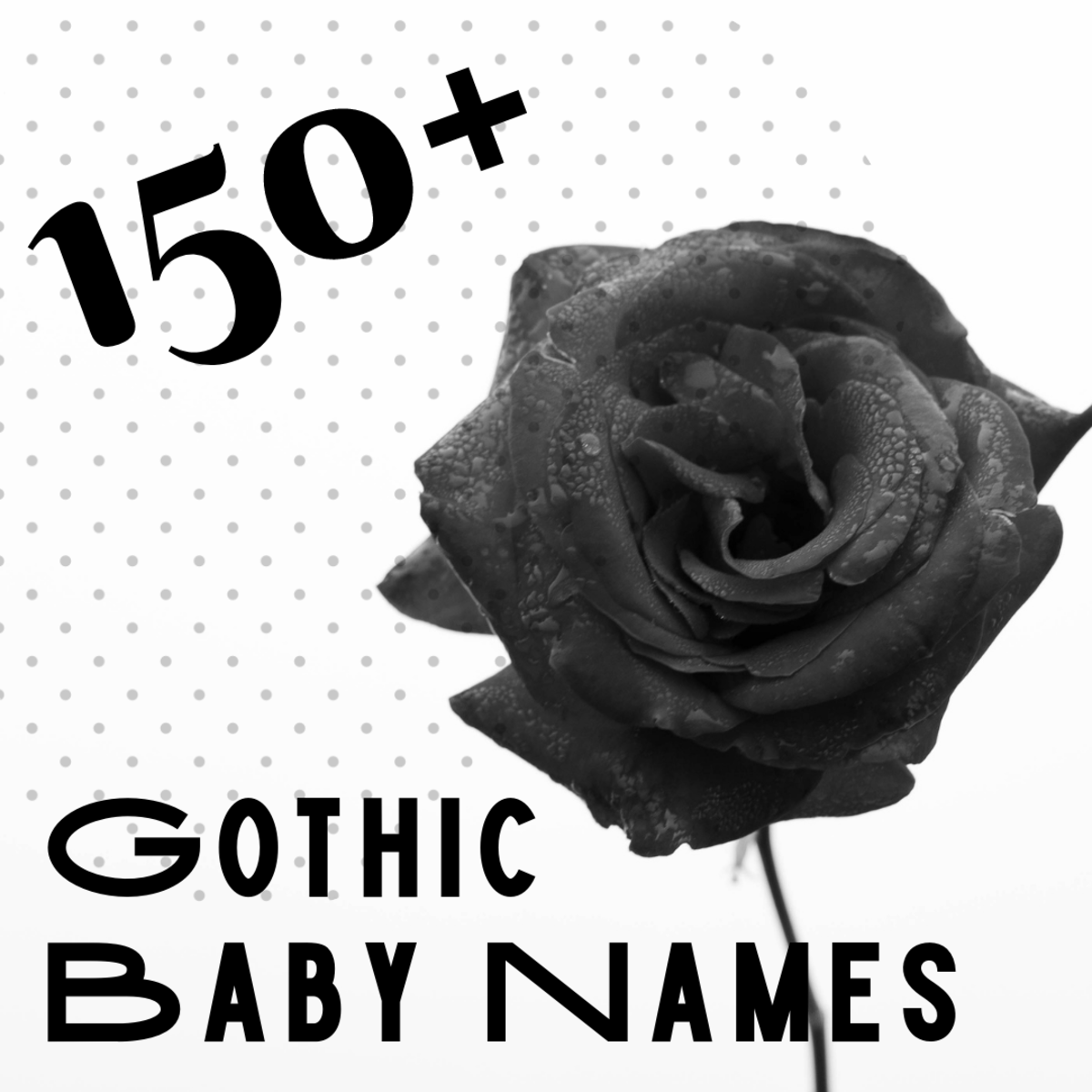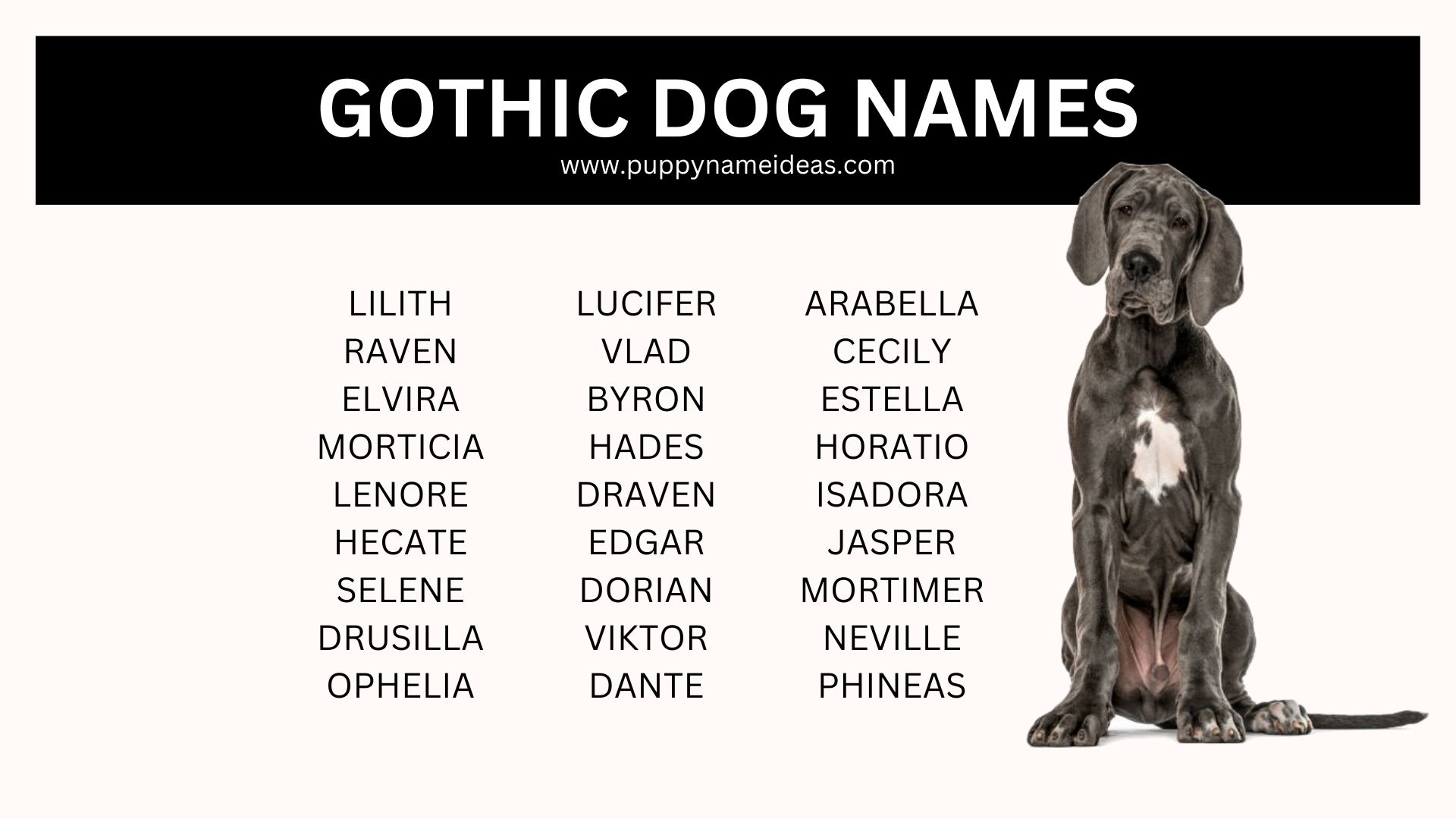Gothic Last Names: Unveiling The Dark And Mysterious Heritage
Have you ever been curious about the allure of gothic last names? Well, buckle up because we’re diving headfirst into a world where shadows dance and secrets linger. Gothic last names are more than just surnames—they’re a reflection of a rich cultural legacy tied to mystery, history, and an undeniable sense of style. Whether you’re fascinated by the dark aesthetic or just love uncovering hidden stories, this article will take you on a journey through time, exploring the origins and significance of these hauntingly beautiful names.
Let’s face it, gothic last names have a certain charm that’s hard to ignore. They carry an air of sophistication, a whisper of rebellion, and a touch of the supernatural. You might’ve stumbled upon them in literature, music, or even while scrolling through family trees. But what makes these names so special? Why do they resonate with so many people today? Stick around, and we’ll break it all down for you.
Before we dive deeper, let’s set the mood. Imagine yourself wandering through an ancient cathedral, the dim light casting eerie shadows on the stone walls. The air is thick with history, and every step echoes with stories untold. That’s the essence of gothic last names—a connection to a past that’s both fascinating and a little spooky. So, are you ready to explore the dark side of naming conventions? Let’s get started!
What Are Gothic Last Names?
Gothic last names are like the velvet-lined box holding a mysterious treasure. They’re not just random strings of letters; they’re steeped in meaning, often tied to places, occupations, or even traits. Picture surnames like Dracula, Nightshade, or Shadowmere. These names aren’t just cool—they’re deeply rooted in history and culture. Think of them as a bridge connecting the past to the present, carrying with them tales of valor, tragedy, and everything in between.
Historically, gothic last names emerged from various regions, particularly in Europe, where naming conventions were influenced by the Gothic tribes and their descendants. The term "gothic" itself refers to a style that emphasizes drama, darkness, and a touch of the supernatural. It’s no wonder these names have found their way into modern pop culture, becoming symbols of rebellion and individuality.
Origins and Cultural Significance
To truly understand gothic last names, we need to rewind to their origins. These names often trace back to medieval times, when surnames began to emerge as a way to distinguish individuals. Some names were derived from geographical locations, like "Blackmoor" or "Darkwood," while others were linked to professions, such as "Smythe" (a blacksmith) or "Grave" (a gravedigger). The gothic influence added layers of depth, making these names even more intriguing.
Culturally, gothic last names reflect the values and beliefs of their time. They’re not just names; they’re stories waiting to be told. In many cases, they symbolize resilience, mystery, and a connection to the supernatural. Whether you’re a fan of gothic literature or simply appreciate the beauty of dark aesthetics, these names offer a glimpse into a world that’s both timeless and enchanting.
Why Are Gothic Last Names So Popular Today?
Fast forward to the 21st century, and gothic last names are having a moment. Why? Because they’re cool, edgy, and packed with personality. In a world where individuality is celebrated, these names stand out as bold choices. They’re perfect for those who embrace the darker side of life, whether it’s through fashion, music, or art. Plus, let’s be honest—who wouldn’t want a name that sounds like it belongs in a vampire novel?
Pop culture has played a huge role in popularizing gothic last names. Think about movies like "The Addams Family" or "Twilight," where characters with names like Morticia and Cullen became iconic. Even in music, bands like The Cure and Bauhaus have helped cement the gothic aesthetic in mainstream consciousness. It’s no surprise that people are drawn to these names—they’re a perfect blend of mystique and modernity.
How to Choose a Gothic Last Name
So, you’re thinking about adopting a gothic last name? Whether it’s for creative purposes, a pen name, or just for fun, there are a few things to consider. First, think about the meaning behind the name. Does it resonate with you personally? Is it tied to a specific cultural or historical reference? Here are a few tips to help you choose:
- Research the Roots: Look into the origins of the name to ensure it aligns with your values and interests.
- Consider the Sound: Go for names that have a rhythmic quality, like "Raven" or "Shadow." They roll off the tongue beautifully.
- Think About Symbolism: Names tied to nature, darkness, or the supernatural often carry deeper meanings. For example, "Nightshade" evokes a sense of danger and beauty.
- Be Creative: Don’t be afraid to mix and match elements to create something truly unique. After all, it’s your name—make it your own!
Famous People with Gothic Last Names
Did you know some famous figures throughout history have had gothic-inspired last names? From writers to musicians, these individuals have carried their surnames with pride, adding to the allure of the gothic aesthetic. Here’s a quick rundown of some notable names:
- Bram Stoker: The man behind "Dracula," arguably the most famous gothic novel of all time.
- Edgar Allan Poe: A master of dark poetry and storytelling, his name alone evokes a sense of mystery.
- Marilyn Manson: The shock rocker who embraced the gothic lifestyle and became a symbol of rebellion.
These names aren’t just famous—they’re legendary. They’ve left an indelible mark on history, proving that gothic last names have staying power.
A Table of Notable Gothic Figures
Here’s a quick look at some famous individuals with gothic-inspired last names:
| Name | Profession | Claim to Fame |
|---|---|---|
| Bram Stoker | Author | Creator of "Dracula" |
| Edgar Allan Poe | Poet/Writer | Known for dark tales like "The Raven" |
| Marilyn Manson | Musician | Iconic gothic rock star |
Where Do Gothic Last Names Come From?
The origins of gothic last names are as diverse as the names themselves. Some trace back to ancient tribes, while others are tied to specific regions or traditions. For example, names like "Grimm" and "Dark" have Germanic roots, while "Mortimer" and "Grave" have French influences. The gothic movement, which began in the Middle Ages, played a significant role in shaping these names, emphasizing themes of darkness, beauty, and the supernatural.
In many cases, gothic last names were adopted by families who wanted to reflect their values or beliefs. They became a way to honor ancestors, celebrate cultural heritage, or even ward off evil spirits. It’s fascinating to think about how these names have evolved over time, adapting to changing societies while retaining their core essence.
Common Variations of Gothic Last Names
Not all gothic last names are created equal. Some have variations that add depth and complexity to their meanings. Here are a few examples:
- Drake vs. Dracula: Both names evoke a sense of mystery, but they carry different connotations. Drake is more regal, while Dracula is undeniably vampire-inspired.
- Shadow vs. Nightshade: Shadow is straightforward and powerful, while Nightshade adds a layer of danger and allure.
- Grave vs. Mortimer: Grave is simple and direct, while Mortimer has a more aristocratic feel.
These variations allow for endless possibilities, making gothic last names a treasure trove of creativity.
Modern Uses of Gothic Last Names
In today’s world, gothic last names have found new life in unexpected places. From fantasy novels to video games, these names are everywhere. Authors like Anne Rice and Stephen King have used them to create unforgettable characters, while game developers have incorporated them into immersive worlds. It’s no surprise that these names continue to captivate audiences worldwide.
But it’s not just in fiction where gothic last names shine. Many people choose them for creative projects, whether it’s writing under a pen name or naming a band. They offer a sense of authenticity and depth that resonates with audiences, making them a popular choice across various mediums.
Tips for Using Gothic Last Names in Creative Projects
If you’re planning to use a gothic last name in your creative work, here are a few tips to keep in mind:
- Research Thoroughly: Make sure the name you choose aligns with the tone and theme of your project.
- Be Consistent: Use the name consistently throughout your work to avoid confusion.
- Add Layers: Give the name a backstory or symbolism that enriches your narrative.
- Experiment: Don’t be afraid to tweak the name to fit your vision. After all, creativity knows no bounds!
The Future of Gothic Last Names
As we move forward, gothic last names show no signs of fading into obscurity. In fact, they’re likely to become even more popular as people continue to embrace individuality and self-expression. Whether it’s through literature, music, or art, these names will remain a powerful symbol of the gothic aesthetic.
So, what does the future hold for gothic last names? One thing’s for sure—they’ll continue to inspire and captivate audiences across the globe. As new generations discover the beauty and mystery of these names, they’ll carry the torch forward, ensuring that the legacy of gothic last names lives on.
Final Thoughts
In conclusion, gothic last names are more than just names—they’re a celebration of history, culture, and individuality. From their origins in medieval Europe to their modern-day popularity, these names have captivated hearts and minds for centuries. Whether you’re a fan of gothic literature, music, or art, there’s something undeniably magical about these hauntingly beautiful names.
So, what’s next? If you’ve enjoyed this deep dive into gothic last names, why not share your thoughts in the comments below? Or better yet, explore our other articles on all things gothic. The world of darkness and mystery awaits—don’t be afraid to step into the shadows!
Table of Contents
- What Are Gothic Last Names?
- Origins and Cultural Significance
- Why Are Gothic Last Names So Popular Today?
- How to Choose a Gothic Last Name
- Famous People with Gothic Last Names
- A Table of Notable Gothic Figures
- Where Do Gothic Last Names Come From?
- Common Variations of Gothic Last Names
- Modern Uses of Gothic Last Names
- Tips for Using Gothic Last Names in Creative Projects
- The Future of Gothic Last Names
- Final Thoughts

150+ Gothic Baby Names WeHaveKids

210+ Gothic Dog Names Puppy Name Ideas

Discover the Most Common Last Names in the World A Learning Guide